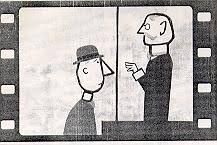My Financial Career By Stephen Leacock
Jun 30, 2019 • 1406 views
My Financial Career by Stephen Leacock portrays the theme of anxiety, trust, confusion, identity and conflict. The narrator is rattling as he enters the bank. The readers can suspect that the fear is driven by the narrator’s lack of trust in the bank. He does not wish to part with his money but knows that he has to because the sum of money he has is too large to keep.

Physical description of the accountant in the bank given by Leacock is also interesting as he describes the accountant as a ‘tall, cool, devil.’ There is also a sense of exaggeration because the sum of money the narrator is lodging is a vast amount for the narrator but to the bank itself it would be considered a rather less amount of money.
The situation where the bank manager assumes that the narrator is somebody important is significant as it plays on the theme of identity. The fact that the bank manager is abrupt and cold with the discovery that all the narrator wants to do is to open a bank account. Through this Leacock may be highlighting how detached those in authority may actually be and rather than taking an interest in the narrator he directs him elsewhere. This shows that the narrator is a man of no importance to the bank manager.

The Narrator’s process of lodging his money is also interesting as he remains confused. This is something that would be considered normal for an individual who for the first time is opening a bank account and it might also be significant that at no stage or any situation do the bank manager, accountant or clerk do anything to calm the narrator’s confusion and fear.
The narrator is a hindrance to those he is dealing with inside the bank which further highlights the conflict that exists between the individual and an institute. The bank needs the individual to exist for their interest yet they do not treat the narrator as a customer but more as a hindrance. At no stage in the story does the reader sense that there is a personal touch being administered by any of the people employed by the bank. They all look at the narrator as being a problem rather than being an asset to the bank. The bank after all need the narrator’s money in order to make a profit but doesn’t treat him with the respect one would expect a new customer to receive.
The ending is interesting as he ends up withdrawing all of his money instead of withdrawing six dollars. Though the narrator realises his mistake he does not rectify it. This is important as it suggests that the narrator’s confusion has gotten the better of him and rather than looking silly he pursues his action of withdrawing all his money. Though the narrator’s actions could be considered ridiculous but symbolically they might be important as Leacock could be highlighting just how uncomfortable the narrator is with leaving his money in the bank.

This also suggest that the narrator is standing up for himself. Though he has been confused and afraid, he still knows that the money he has lodged is his. After the withdrawal of his money he came out of the bank and those in the bank laugh at the narrator which is also interesting as it suggests that they may consider themselves better than the narrator. Rather than accepting that the narrator is afraid, all those bank employees lack the ability to empathize with the narrator.
